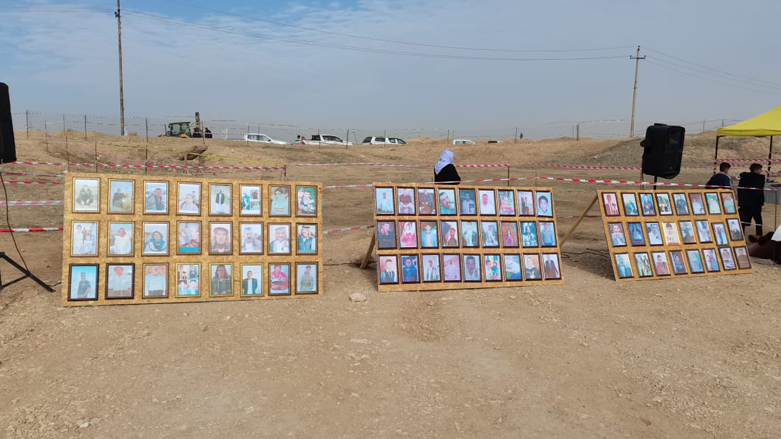Civil society organizations warn Yezidi Survivors Law needs more financial support

ERBIL (Kurdistan 24) – The Coalition for Just Reparations (C4JR), an alliance of 31 Iraqi civil society organizations, warned in a press conference on Tuesday that the earmarking of sufficient funding for implementation of the Yezidi Survivors Law in the 2022 Iraqi Federal Budget is of critical importance.
On Mar. 1, 2021, Iraq’s parliament ratified the Yezidi survivor law, which will offer financial compensation to survivors of the genocide committed against the Yezidi community by ISIS.
Parliament had debated the draft law for two years since the presidency sent it in late March 2019.
Read More: UN: Yezidi survivors law a major step, full implementation essential
In a press release on Tuesday, the Iraqi civil society organizations said that some steps have already been taken to implement the Yezidi Survivors Law, including the appointment of the Director-General of the Directorate for Survivors’ Affairs and the opening of a temporary office in Mosul to accommodate this Directorate.
However, they warned that “the Government of Iraq must allocate adequate funds to allow for proper resourcing and staffing of the Directorate for Survivors Affairs and sub-offices to ensure that implementing institutions are equipped to successfully oversee this important work.”
“Additionally, the Government of Iraq must allocate adequate funds to allow for the full satisfaction of all benefits promised under the law to eligible survivors, including salaries, housing, public employment, health care and mental health support, and education,” they added.
The civil society organizations also said that “without sustained dedication, this law will remain on paper and its promised benefits will not reach survivors in need.”
FYF was pleased to join @c4jrOrg and partners in Baghdad to mark one year since passage of #Yezidi #Yazidi Survivors' Law.
— FreeYezidiFoundation (@Free_Yezidi) March 1, 2022
There is much to do and a long way to go until this law is implemented for the benefit of the surviving communities. pic.twitter.com/gtDdueQ6Xt
The Free Yezidi Foundation (FYF), which joined the press conference, tweeted that “there is much to do and a long way to go until this law is implemented for the benefit of the surviving communities.”
“We and other Yezidi activists are very supportive of the Yezidi Survivors' Law,” Pari Ibrahim, the Founder and Executive Director of the FYF, told Kurdistan 24. “It contains many provisions that are essential for recovery and support. However, laws are only as good as their implementation.”
“We implore Iraq authorities to supply the Directorate with sufficient resources to ensure we, in Yezidi civil society, can match the expectations of the law with implementation on the ground,” she said.
Yezidis were subjected to one of the worst genocides in modern history at the hands of ISIS when the group invaded Sinjar (Shingal) in August 2014.
Thousands of Yezidis fled from ISIS’s genocidal onslaught to the Kurdistan Region and neighboring countries. Others were stranded, and many women and children kidnapped by the terrorist organization remain missing to this day.
Women faced a harsh life under ISIS, subjected to rape and sexual slavery in Iraq and Syria, while most men were executed.
